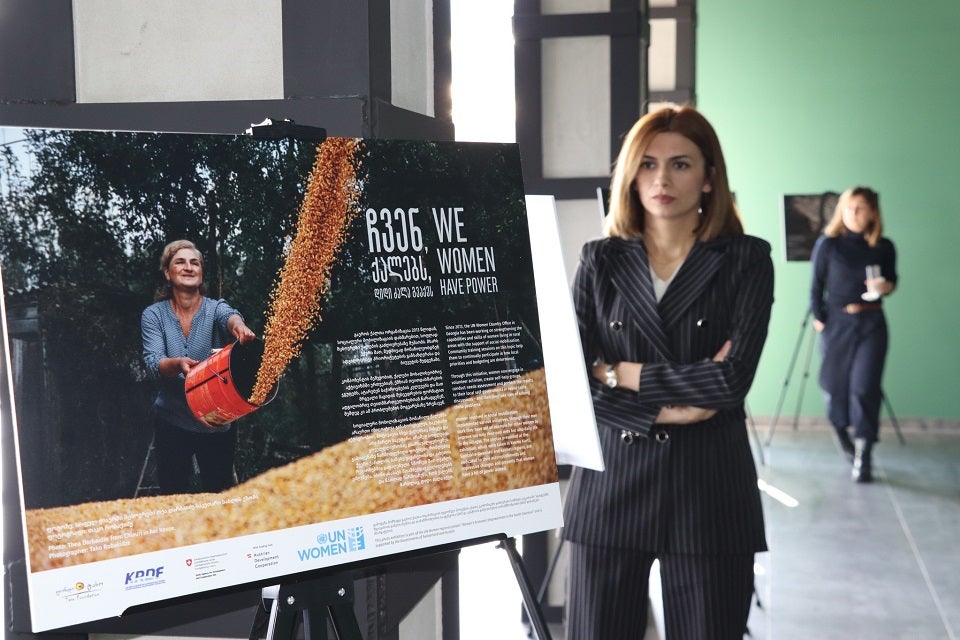‘We Women Have Power’: UN Women publication showcasing rural women’s achievements through social mobilization and gender responsive budgeting
Date:

How rural women change the lives of their families, villages and communities for the better, and the difficulties they have to overcome to do so - these are the topics addressed in “We Women Have Power”, published by UN Women as part of Gender Week. In parallel with the presentation of the publication, a photo exhibition and panel discussion with the same name were held.
The event was attended by Kaori Ishikawa, UN Women Country Representative in Georgia; Barbara Böni, Regional Director of the Swiss Cooperation Office in the South Caucasus; Irakli Lazarashvili, Mayor of Akhaltsikhe Municipality; David Lomidze, Chairman of Akhaltsikhe City Assembly; representatives of local authorities and non-governmental organizations; and women living in rural areas participating in social mobilization.
“Women have a heavy burden of responsibility, especially women living in rural areas,” Mr. Lazarashvili remarked in his welcoming speech. “It is important that international partners, local government agencies and civil society agree on one common goal: to support women living in rural areas, to strengthen them and to promote their well-being.”
Since 2013, UN Women has been working to empower women living in rural areas of Georgia with the support of social mobilization. Community training sessions on this topic help them to continually participate in how local priorities and budgeting are determined.
As a result, women engage in volunteer activism, create self-help groups, conduct needs studies and present the results to their local self-governments in the form of round-table meetings - and then they take care of solving these problems. The social mobilization initiative is being carried out in cooperation with the TASO Foundation and the Kakheti Regional Development Foundation.
Women have already laid the foundation for many local initiatives. Through their own work, they have motivated other women to improve not only their own lives but also daily life in the villages. The stories and photos included in the publication showcase the regions of Kvemo Kartli, Samtskhe-Javakheti and Kakheti and present the achievements of their activist women. They reflect the tangible and impressive changes that these women have made and clearly show that women do indeed have a lot of power. During the panel discussion, the women involved in social mobilization talked about these changes, achievements and plans themselves.
Mzia Surmanidze, a community worker with the TASO Foundation and a resident of Khertvisi village in Aspindza Municipality, remarked after the event: “I brought the women who participated in both the first and second phases of the project to the meeting, so that they could see how much we are actually doing and that in the future they themselves, together with the population and self-government, can initiate beneficial changes in the community. At the event, I saw how much work we actually do - something that I didn’t realize on such a large scale before. I was very proud that we were given the opportunity to talk about it and share it with others.”
The event was held within the framework of the UN Women regional project “Women’s Economic Empowerment in the South Caucasus”, with the financial support of the Swiss Agency for Development and Cooperation (SDC) and the Austrian Development Cooperation (ADC).